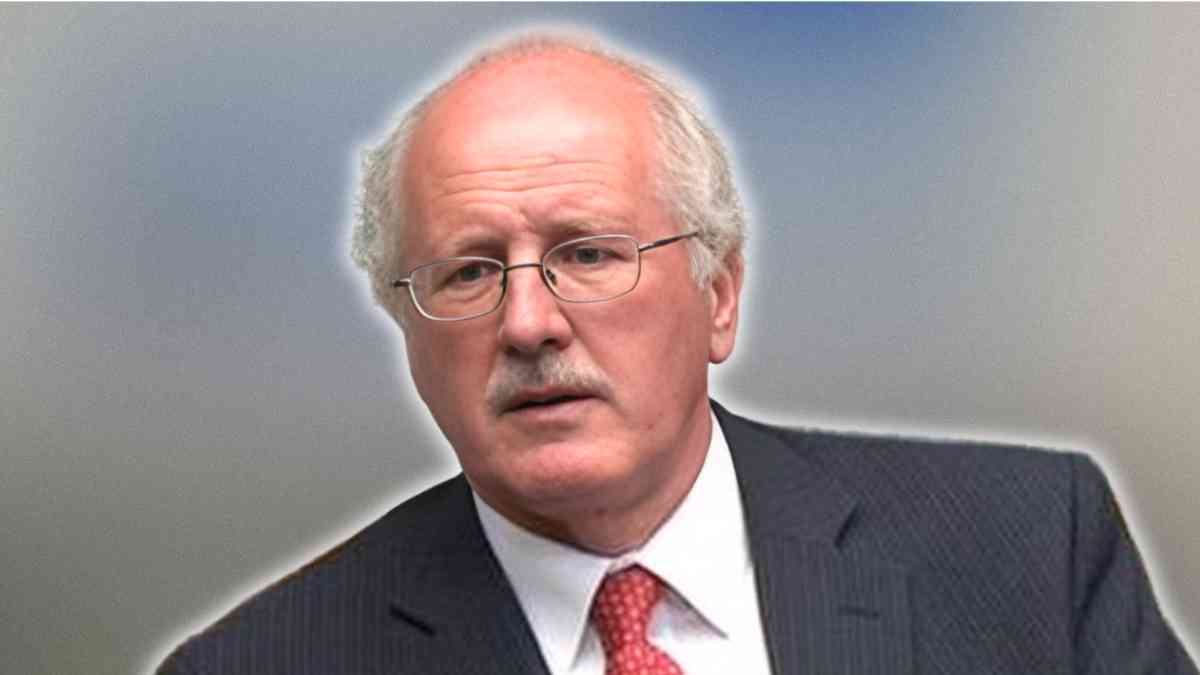Jim Shannon MP: The Unwavering Sentinel of Strangford, Veterans and Freedom of Belief

Few Westminster figures match the relentless energy of Jim Shannon MP. Since first winning the Strangford seat in May 2010, he has spoken in almost every adjournment debate, tabled hundreds of parliamentary questions, and maintained one of the highest constituency engagement records in Northern Ireland. His distinctive Ulster brogue, steady moral compass, and readiness to cross traditional party lines on matters of conscience have earned him cross-bench respect as well as occasional controversy. Now into his sixth decade of public service, Shannon embodies the fusion of local rootedness and global advocacy that increasingly defines 21st-century politics.
Early Life and Formative Years
Richard James “Jim” Shannon was born on 25 March 1955 in Omagh, County Tyrone, but grew up on the Ards Peninsula—an environment of farms, fishing boats, and tight-knit Protestant communities. Early exposure to agricultural graft and village councils shaped his belief that politics should “speak in the accent of ordinary folk,” a phrase he still repeats at constituency surgeries. An upbringing steeped in evangelical faith also instilled a conviction that freedom of religion is a birth-right, not a privilege—an idea that would later define his parliamentary brand.
Service in Uniform: Ulster Defence Regiment and Territorial Army
Before local government beckoned, Shannon spent almost fifteen years in uniform. He first joined the Ulster Defence Regiment in the turbulent mid-1970s, patrolling rural checkpoints during some of the conflict’s darkest nights. After a brief return to civilian life he enlisted in the Royal Artillery Territorial Army, rising to lance bombardier and earning a reputation for steady nerves under pressure. The discipline, camaraderie and exposure to danger forged a lifelong commitment to veterans’ welfare. No Westminster debate on mental-health provision for ex-service personnel is complete without his gravelly interjection—often featuring personal anecdotes from comradeship days on the Mourne training ranges.
Grass-Roots Politics: From Ards Council to Stormont
Shannon’s formal political journey began in 1985 when he won a seat on Ards Borough Council. Over twenty-six consecutive years he served as councillor, deputy mayor and eventually mayor (1991-1992), championing bypass roads, harbour regeneration and rural broadband long before such projects became central-government talking points. In 1996 he entered the Northern Ireland Forum and two years later secured election to the newly created Northern Ireland Assembly. As an MLA he specialised in agriculture, fisheries and policing oversight, helping shape early legislation that widened compensation for victims of sectarian violence. Those formative Stormont debates, conducted amid post-Good-Friday-Agreement tensions, honed the consensus-building instincts he now deploys on select committees at Westminster.
Election to Westminster: Carving a Niche in the Commons
When Iris Robinson vacated Strangford in 2010, Shannon seized the opportunity, campaigning on a pledge of “hard work, early starts and honest answers.” He won with 45.9 percent of the vote and a 5,876 majority—figures that have fluctuated but endured across four subsequent elections, settling at 5,131 after the 2024 contest. At Westminster he quickly became the Democratic Unionist Party’s spokesman on health, then widened his remit to transport, equality and, most recently, human rights. He is one of only a handful of Northern Irish MPs who regularly attend defence briefings, a habit rooted in his Ulster Defence Regiment days.
Champion of Health, Human Rights and Religious Freedom
Shannon’s deepest parliamentary footprint lies in his role as Chair of the All-Party Parliamentary Group for International Freedom of Religion or Belief. Under his stewardship the group has investigated abuses from the Niger Delta to North Korea, published landmark reports on blasphemy laws and successfully lobbied for a UK Global Human Rights Sanctions regime that includes faith-based persecution as a triggering criterion. Domestically he has tabled private members’ bills seeking to strengthen legal protections for places of worship and to embed faith-literacy modules in Foreign Office training programmes. Constituents often remark that “Jim answers the phone as fast for a Bangladeshi pastor as for a Ballywalter farmer”—a testament to his equal-handed advocacy.
A Reputation for Relentless Participation
In the 2017-2019 Parliament Shannon logged more than 1,300 spoken contributions—an average of nearly two interventions per sitting day. His method is straightforward: arrive early, scan the order paper, and “make sure nobody’s voice goes unheard,” as he once told the Speaker. Admirers praise the way he supports back-bench colleagues by “filling the benches” during poorly attended debates; critics mutter about “serial intervention.” Shannon’s own view is unapologetic: “The Commons is not a spectator sport.” That work ethic extends to committee rooms, where he sits on Northern Ireland Affairs and Defence sub-panels, combing line-by-line through statutory instruments that barely make headlines but directly affect border communities and armed-forces dependants.
Legislative Achievements and Campaigns
While Shannon has never served as a minister, he can point to concrete wins:
-
Armed Forces Covenant (Northern Ireland) Recognition – an amendment he co-sponsored ensured the 2021 Armed Forces Act explicitly covered devolved institutions, guaranteeing veterans equal access to housing and health services across all provinces.
-
Blue Light Card VAT Exemption Motion – his persistent lobbying helped secure Treasury agreement that emergency service discount schemes remain tax-free.
-
Foreign Aid and Faith Minorities Clause – language he drafted now requires the Foreign, Commonwealth and Development Office to report annually on how aid spending reaches persecuted religious communities.
Beyond bills and motions, Shannon runs cross-party groups on autism, prostate cancer and healthy homes. In 2022 he led a successful campaign persuading supermarkets to introduce “quiet hours” nationwide—a policy sparked by conversations with Strangford parents raising children on the autism spectrum.
Controversies and Transparency Challenges
A portrait this glowing would be incomplete without acknowledging the expenses saga. Between 2014 and 2016 Shannon topped Westminster’s claim tables, prompting an Independent Parliamentary Standards Authority investigation that ultimately demanded repayment of just under £14,000 in staff mileage errors. He apologised, implemented new audit controls and hasn’t returned to the headlines for financial mis-steps since. Opponents occasionally revive the story at election time, yet Strangford voters appear persuaded by his contrition and visible dedication. Shannon also faced early-career scrutiny over alleged links to loyalist groups during his Territorial Army years—allegations he consistently denies, emphasising that no charges were ever brought.
Personal Faith, Family and Community Connections
Away from television cameras Shannon remains deeply embedded in County Down life. Parishioners see him ushering at Sunday services, Orange Order lodges hear him advocate peaceful cultural expression, and veterans’ halls rely on his annual Christmas raffle prizes. Married to Sandra Shannon for over four decades, he credits her—and their three adult children—with tempering his workload and reminding him to “leave the politics at the front door.” Friends recall the emotional moment in December 2022 when he wept in the Commons while thanking Sandra for supporting him through the loss of her mother to COVID-19; even hardened adversaries admitted the authenticity was disarming.
Influence on Northern Ireland’s Post-Brexit Landscape
The 2024 shift to a Labour government has re-shaped Belfast-London dynamics. Shannon, though firmly pro-Union, has positioned himself as a pragmatic bridge-builder, focusing on trade corridors and veterinary standards rather than headline-grabbing constitutional rows. His recent choice to swear the parliamentary oath in the Ulster Scots dialect was equal parts cultural assertion and negotiation tactic—a signal that identity matters, but solutions matter more. He now argues for a bespoke Northern Ireland agrifood deal that would let Strangford’s dairy and shellfish producers ship to both Great Britain and the EU without duplicate inspections. In cross-bench meetings he often reminds ministers that compromise “must be felt at the ferry port, not just in Hansard.”
Looking Ahead: Priorities for the Next Parliamentary Term
Heading toward 2030, Shannon’s agenda circles three pillars:
-
Veterans’ Well-being – pushing the Ministry of Defence to expand mental-health hubs into rural Northern Ireland and secure ring-fenced funding for PTSD therapy.
-
Faith-Based Diplomacy – leveraging his APPG chairmanship to influence UK sanctions policy against regimes targeting religious minorities, and to embed freedom-of-religion metrics in trade agreements.
-
Coastal Regeneration – partnering with Strangford Lough fishermen and green-energy firms to develop tidal-power pilots that could deliver jobs and decarbonisation.
He is also quietly grooming a new generation of DUP activists—male and female, unionist yet socially diversified—insisting that “the future is won by mentoring, not gate-keeping.”
Conclusion
After four decades of public office, Jim Shannon MP shows no sign of muting his distinctive voice. Whether defending persecuted worshippers in Lahore, grilling ministers on veterans’ pensions, or securing traffic-calming in Portaferry, his compass remains fixed on service. In an era when political careers often flicker and fade with social-media trends, Shannon offers voters—and critics—a different model: persistence, authenticity, and a willingness to fight each battle, large or small, as though the outcome truly matters. For constituents along the Ards Peninsula and citizens following Westminster from afar, that steadfast dedication is both reassuring and, in its own way, quietly inspiring.



